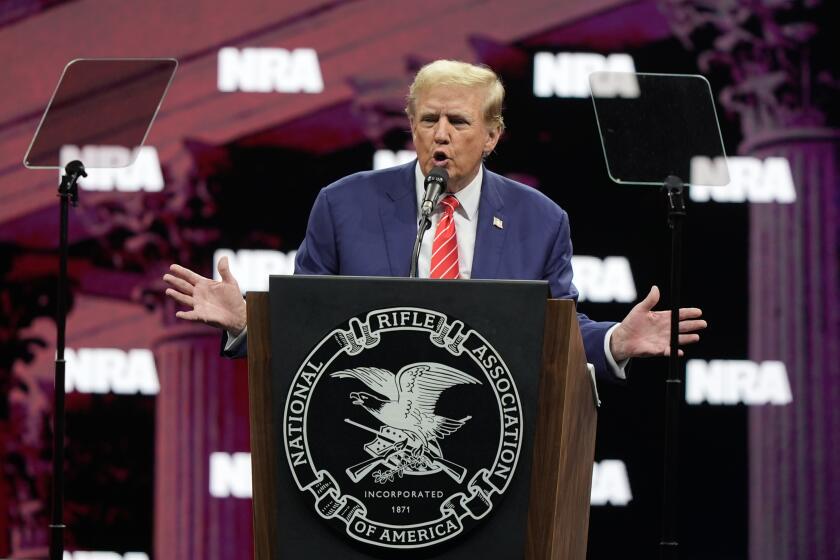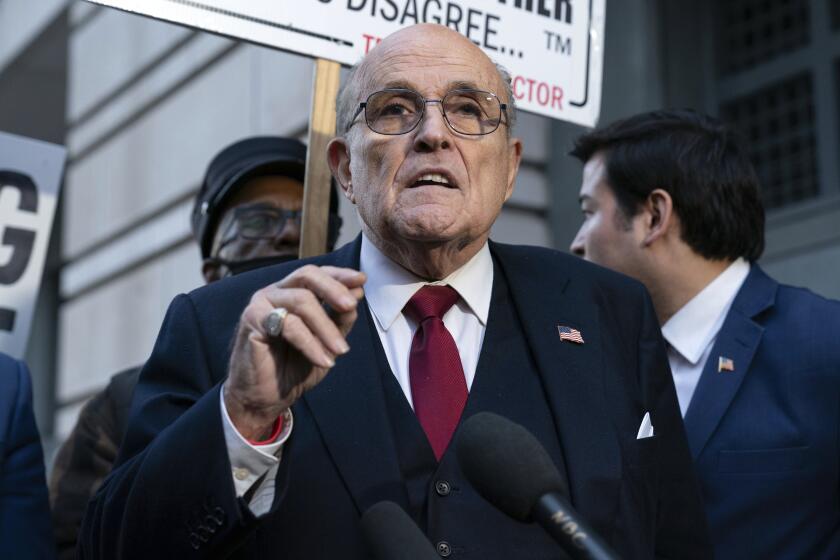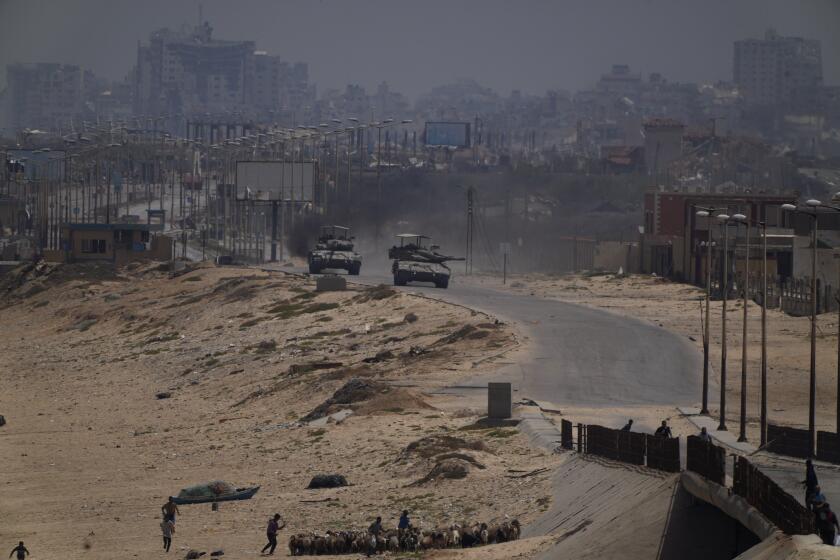China Ousts Security Chief Who Faulted Police, Failed to Crush Student Protests
Shortly after he was named China’s minister of public security two years ago, Ruan Chongwu dared to broach a subject rarely discussed by Chinese officials: police misconduct.
Ruan acknowledged that a minority of police officers “are arrogant in their work, corrupt, resort to torture during interrogation or bend the law for the benefit of relatives and friends.”
In a nation where resentment of the power of the police runs deep, those words attracted considerable notice.
On Saturday, Ruan’s efforts to change the behavior and image of the police came to an end. China’s top leadership ousted him as minister of public security and replaced him with an insider who, unlike Ruan, has decades of experience as an official within the security apparatus.
Wang Fang, the new minister, is the Communist Party boss and a former public security director of eastern China’s Zhejiang province. In 1980, Wang was one of the prosecutors at the historic trial that convicted Mao Tse-tung’s widow, Jiang Qing, and her allies of counterrevolutionary crimes.
In Charge of Police
Ruan’s dismissal and Wang’s appointment were announced on the final day of the annual session of the National People’s Congress, China’s Parliament. As is customary, the congress gave no formal explanation for the personnel change.
The Ministry of Public Security is in charge of most of the ordinary, uniformed police work carried out from day to day.
A separate Ministry of State Security, formed along the lines of the Soviet Union’s KGB, was set up in 1983 to handle such tasks as counterintelligence and monitoring of foreigners’ activities in China.
Many foreign analysts here believe Ruan is being punished or held responsible for the wave of student protests for democracy that spread through Chinese cities in December and January.
In some locations, police made little or no attempt to prevent the demonstrations. On one occasion--Jan. 2--thousands of students in Beijing were allowed to march freely through a series of police lines across city streets as they moved from university campuses to the center of the capital.
Change in Party Leader Cited
Some Chinese officials contend that Ruan’s ouster should be viewed more as an outgrowth of the recent change in Communist Party leadership.
The former party general secretary, Hu Yaobang, was forced to resign Jan. 16, soon after the student demonstrations.
“Whenever you have a change in the party leadership, you can expect a change in the security ministry, too. That’s always been the way here,” one Chinese official said.
Ruan was an outsider to the security ministry, an urbane man who speaks four languages and wears well-tailored Western suits. Some of the public statements he made over the last two years may have irritated veteran police officials.
He was trained during the 1950s at Moscow’s automobile machinery institute and spent most of the early years of his career as an engineer and scientist. He also served as the science and technology counselor of China’s embassy in West Germany. In 1983, he became vice mayor of Shanghai, in charge of city planning.
Ruan was appointed minister of public security in September, 1985, during a period when Communist Party reformers allied with Hu were being installed in many leadership posts.
A few months later, he wrote an article in the China Legal Journal contending that Chinese police officers should shift their emphasis from catching criminals to preventing crime and protecting property and legal rights.
“One should not regard the police only as an organ of suppression,” he said. A small number of morally degenerate officers commit crimes to pursue a bourgeois life style, Ruan wrote.
Wang was a political commissar in the People’s Liberation Army before the Communist takeover in 1949 and then spent most of the next 18 years in public security work in Zhejiang. He was purged in 1967 in the early stages of the Cultural Revolution but reappeared in provincial jobs beginning in 1977.
One of Four Appointments
Wang’s appointment was one of four made Saturday on the final day of the People’s Congress session. Also approved was the appointment of Li Tieying, the minister of the electronics industry, as the head of the state commission for restructuring the economic system, the group in charge of China’s economic reform program.
That job was previously held by Premier Zhao Ziyang. Zhao, who was named acting Communist Party secretary in January, apparently decided he was too busy to remain responsible for the day-to-day operations of the economic reform group.
The congress accepted Zhao’s outlines for government policies but adopted a separate resolution calling upon the nation to combat waste and extravagance, to uphold the principle of “self-reliance” and to place renewed emphasis on grain production.
All these themes have been raised by tradition-minded conservatives within the Communist Party.
More to Read
Start your day right
Sign up for Essential California for news, features and recommendations from the L.A. Times and beyond in your inbox six days a week.
You may occasionally receive promotional content from the Los Angeles Times.






